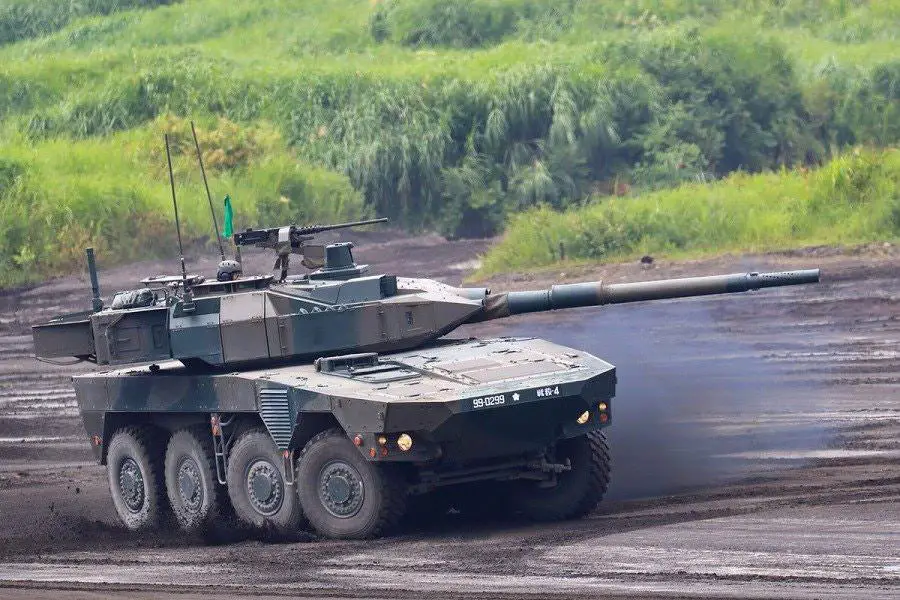The Japan Ground Self-Defense Force (JGSDF) is requesting 33 Type 16 Maneuver Combat Systems (MCV), also known as a Japanese twenty-first-century tank destroyer, according to document entitled Defense Programs and Budget of Japan in late March. The procurement of additional mobile combat vehicles suited for transportation by aircraft and other means will strengthen rapid deployment capabilities of the basic operational units (rapid deployment division and rapid deployment brigade). Japanese Ministry of Defense plans to spend $2.2 billion (Â¥23.7billion) to buy new Type-16 Maneuver Combat Systems.

The Type 16 Maneuver Combat Vehicle equips designated combat units. Due to its light weight and small size, it is designed for easy deployment llowing rapid movement on narrow roads and in built-up areas in response to various contingencies. Despite its small size and light armor, it can successfully attack much larger armored fighting vehicles as well as personnel, using its large caliber gun. The intention is for the MCV to act as both as a rapid reaction asset against conventional incursions on the outer islands and as a counter-insurgency vehicle against asymmetrical attacks in urban areas of Japan by enemy special forces, intelligence operatives, or their proxies.

MCVs are expected to be highly functional, but can also be loaded on Kawasaki C-2 at the same time. JPSDF is dedicated to securing transport vessels for maritime transport independently, and will be carried on these vessels and transported to the Okinawa Islands.Although the vehicle uses modular armor, it has a relatively delicate undercarriage and drive system that may be vulnerable to improvised explosive devices (IEDs) and other underbody blasts. Since the MCV is designed only for defending against enemy invasion of the home islands, it is unlikely to find itself fighting a lengthy counter-insurgency campaign in a foreign nation, or encountering enemy minefields while spearheading an invasion of an enemy power.

The main gun is manually loaded as a cost-saving measure. Some critics have expressed doubts about its effectiveness due to this strain on the crew in hot conditions, as the vehicle does not have air conditioning. Concerns have also been expressed by some about what they perceive as a shortfall in the MCV’s off-road capability. In 2009 resistance testing of the shielding against HEAT rounds was conducted using the Carl Gustav M2; and against regular kinetic ammunition the frontal shield was developed to resist shots from 20 mm to 30 mm autocannons while the side armor was deemed sufficient to resist 12.7 mm heavy machine gun fire.
















